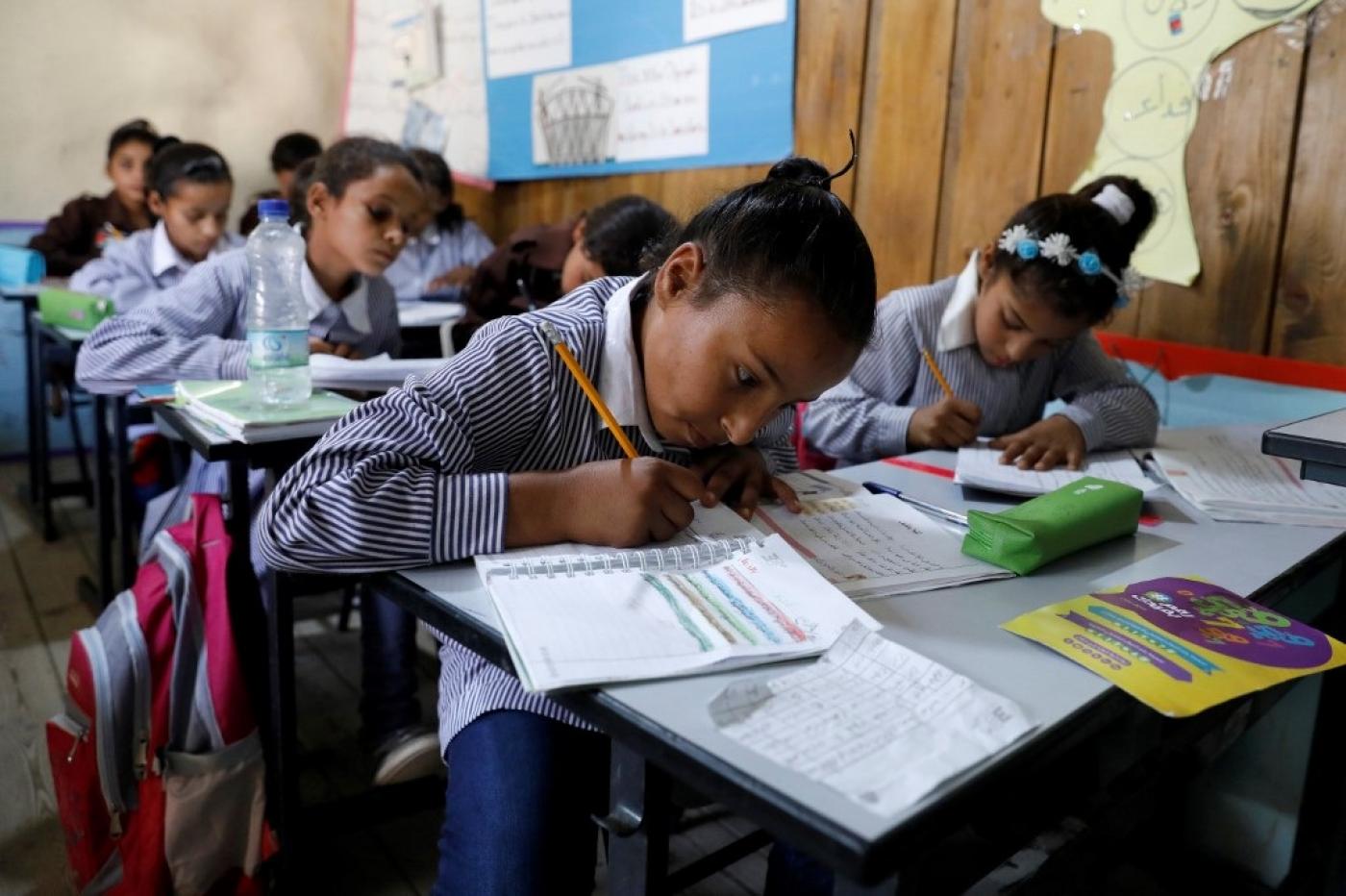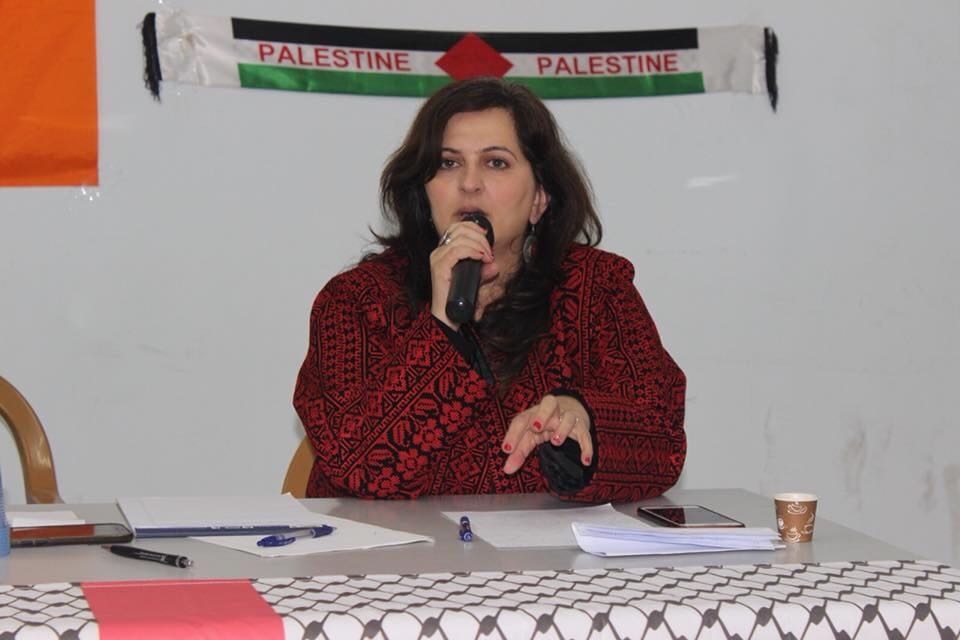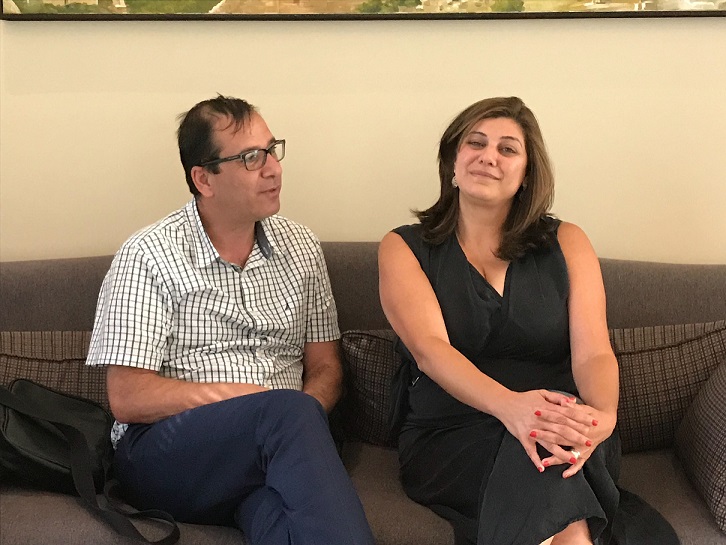Reading, writing and racism: 'Nation-state' law now official Israeli curriculum

Starting this school year, all Israeli students must learn about the law which codifies Jewish supremacy, a change decried by Palestinian-Israeli parents and teachers
Reading, writing and the second-class citizenship of Palestinians in Israel: that’s what students will be taught in Israeli classrooms this school year as the controversial nation-state law becomes part of the state curriculum.
In August, the Ministry of Education announced that the law, passed in 2018, which codifies Jewish supremacy in the country, would be a mandatory topic starting in September.
Education Minister Rafi Peretz said that it is important to teach the law “that demonstrates our historical right as a sovereign people and constitutes a legal basis for the State of Israel as the nation-state of the Jewish people”.
But educators, psychologists and parents of Palestinian students in Israel have decried the changes, which will force children to learn that they are “less than a Jewish citizen” in order to go to university.
Education in Israel is segregated with Arab and Jewish students taught in separate schools at both elementary and secondary level, under the administration of the Ministry of Education.
“They want to teach our children that Jews are the rightful owners of this land, and that we are here as guests, that as Arabs they do not have the right to live in equality with Jews,” said Jihad Abu Rayya, a lawyer and political activist in Haifa, whose children will have to study the law.
“That as Arabs students, they have to learn this information to pass their exams – imagine how humiliating that is? This is what they aim to do with this law: humiliate us.”
'Erasure of identity'
Israel passed the nation-state law in July 2018. The bill constitutionally enshrines Jewish supremacy by stating that the “fulfillment of the right of national self-determination in the State of Israel is unique to the Jewish people”.
It also claims the state “views Jewish settlement as a national value and will labor to encourage and promote its establishment and development”.
Other clauses include the downgrading of Arabic from an official language to having “special status”, reiterating that only Jews can immigrate and receive automatic citizenship, and that “greater and united Jerusalem is the capital of Israel”.
While the international community and left-wing Israelis condemned the law as discriminatory and racist, many within the Palestinian community in Israel have argued that it merely codifies long-standing, apartheid-like policies against Palestinian citizens in the country.
Now starting with this school year, the law will be taught to all high school students as part of civics studies and will also be a compulsory topic on the Israeli matriculation exams that all graduating seniors must take to study at university.
According to educators and parents, civic studies taught in Israeli schools centred on the Jewishness of the state and its institutions even before the law was incorporated into the curriculum.
But it is the first time, they argue, that students will be forced to learn and be tested on material that explicitly outlines the supremacy of Jews over non-Jews.
Soon after the Education Ministry announced its decision, the Regional Parents’ Committee of the Arab Society in Israel rejected the move.
“This law contributes to the erasure of the authentic Arab identity of our society,” the committee said in a statement, calling on Palestinian citizens of Israel to stand together against the teaching of the law and in disobeying the ministry’s orders.
‘Racist material’
Palestinian citizens of Israel make up some 20 percent of the country’s total population, with around 556,000 Palestinians enrolled in secondary schools.
The Palestinian population in Israel are descendants of those who remained on their land during a campaign of ethnic cleansing by Zionist militias to establish the state of Israel by force in 1948. The event is known as the "Nakba" to Palestinians, meaning “catastrophe” in Arabic.
Since then, Palestinians who managed to remain and were given Israeli passports have faced continuous policies of dispossession, land theft, violence and treatment as a fifth column.
According to Adalah, the Haifa-based human rights organisation, there are currently at least 65 laws within the state that limit Palestinians rights in all areas of life, including political participation, land, housing and education.
Yousef Jabareen, a member of the Israeli parliament, argues that inserting the nation-state law into the educational curriculum is a serious escalation on the part of the government which could have unexpected consequences.
The move comes, he said, not only because the state is peddling an exclusivist Jewish Zionist narrative, but also because it is introducing apartheid into education.
“In normal circumstances, the subject of civics is meant to teach democratic values such as human rights and the right to equality in citizenship,” Jabareen told MEE.
“Israel, however, is teaching the student that a Jew has national supremacy over the other minorities. Arab students will learn that this land is for the Jews, and that they must accept inferiority and second-class citizenship.”
He added: “I don’t think there exists another country in the world that encourages teaching such racist material which urges Jewish-only supremacy and colonisation.”
Earlier precedent
This isn’t the first time that students in Israel have been subject to controversial material.
Two years ago, the Education Ministry made an online course mandatory for any high school student wishing to travel overseas on a school-sponsored trip. The course, the ministry said, was meant to equip students with tools to answer questions they might encounter abroad.
One question included in the course asks “How do Palestinian organisations use social media?” The only correct answer is “to incite violence”.
In other parts of the course, then-education minister Naftali Bennett says in a video that Israel is “surrounded by roughly a billion Arabs and Muslims” who “don’t want this tiny little country to survive,” and explains that Jews have an exclusive right to the land.
Niveen Abu Rahmon is a former Knesset member and education expert who has taught civics for ten years. She told MEE she believes the Israeli education system is structured in a way that is “entirely foreign to a Palestinian student”.

'I was summoned and questioned on several occasions due to my political views,' said Niveen Abu Rahmon (MEE)
“The student is distanced from their cause and identity, causing him or her to feel alienated,” she said. “This reflects negatively on the student’s psychology and ability to perform well in school.”
Over the past few years, she continued, the state has been pushing the Zionist narrative harder than ever – not simply in civics, but also in other subjects such as history and geography, eliminating Palestinian history or anything linked to it, including the Nakba.
Jabareen agreed. “The decision to incorporate the nation-state law into the curriculum is telling of this increasing trend to deepen and internalise this narrative. It is the first time that such racist, supremacist definitions become part of Israel’s basic laws.”
Psychological impact
Munib Khaled, a history teacher from Sakhnin, a Palestinian-majority town in northern Israel, told MEE that the decision puts the schools and teachers between a rock and a hard place.
“On the one hand, we have a responsibility to make sure that the students successfully pass their final exams,” she said. “On the other hand, I will be forced to stand against my ideals, and tell my [Palestinian] students that they are second-class citizens and a minority, while Jewish students are more privileged and have more rights. How do you think this will play out?”
Abu Rahmon, with a smile on her face, said to escape the situation, she tells her students "that the civics teacher is a liar, and that the civics curriculum is a lie, and that I teach this subject because it’s the only way for you to succeed and be accepted into universities.”
“On a personal and psychological level, teaching this subject is very difficult – I feel that I have moral and ethical and national responsibility towards the students,” she added.
In Israel, the state’s internal security services work alongside the education ministry to screen, appoint teachers and principals, and monitor implementation of the curriculum in Palestinian schools.
“The general atmosphere in the education system is intimidating,” said Abu Rahmon. “I was summoned and questioned on several occasions due to my political views.”
Psychologist Hazar Hijazi said that schools are supposed to prepare students for life and create a safe space for creativity. Right now, they are operating with the opposite effect.
“Forcing our students to learn about a law that limits their own personal space, and tells them that they are limited creates conflict,” Hijazi said.
“The education system teaches the student that he/she is not a complete human being, and that they are less than a Jewish person, that his or her identity, culture and humanity are not recognised. This is equal to psychological exploitation of the student and is similar to children that are exposed to violence.”
Encouraging hate
For Abu Rayya, the new curriculum is only the latest development in a state that has created an internal struggle for parents like him, pulled between their identity and history and their need to secure a future for their children by engaging with state institutions.
“You have to say things that you do not believe in. You have to know that this country is not yours. You have to admit that the Jewish people have supremacy over you,” he said.
Still, the idea that his children will be exposed explicitly to the law is uniquely demeaning.
“I raised my son to know the Palestinian origin of this land. Yet, for him to pass his senior grade, he must write with his own hand that Jews have more of a right to this land than he does – that he is not entitled to the same benefits as Jews,” he said.

Jihad Abu Rayya, a lawyer and political activist, and psychologist Hazar Hijazi, who are married (MEE)
“This is the pinnacle of humiliation and the legalisation of discrimination – forcing you to lie as a student to be able to start your life as a young man or woman.”
In light of the current situation, a group of civics teachers have launched an initiative to introduce alternative material that incorporates Palestinian history, identity and values, something many see as their moral responsibility.
Jabareen said: “We hope that there will be a response from all civics teachers against teaching this new law until it pressures the ministry enough to withdraw its decision.”
Meanwhile, he said, he worries not only about the impact the new curriculum will have on Palestinian students in Israel, but also on their Jewish classmates.
"It will encourage them to hate the Arabs and the other," he said. "This is more encouragement to have a bad attitude, to treat Palestinians as the enemy and to be more hateful."
Source: Middle East Monitor

WRITE YOUR COMMENT